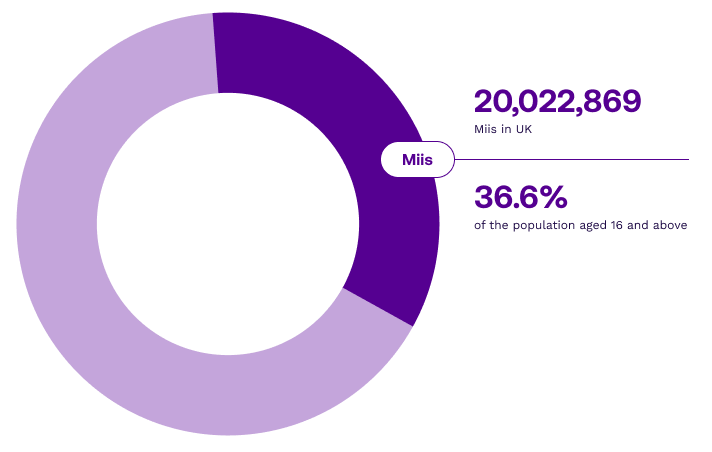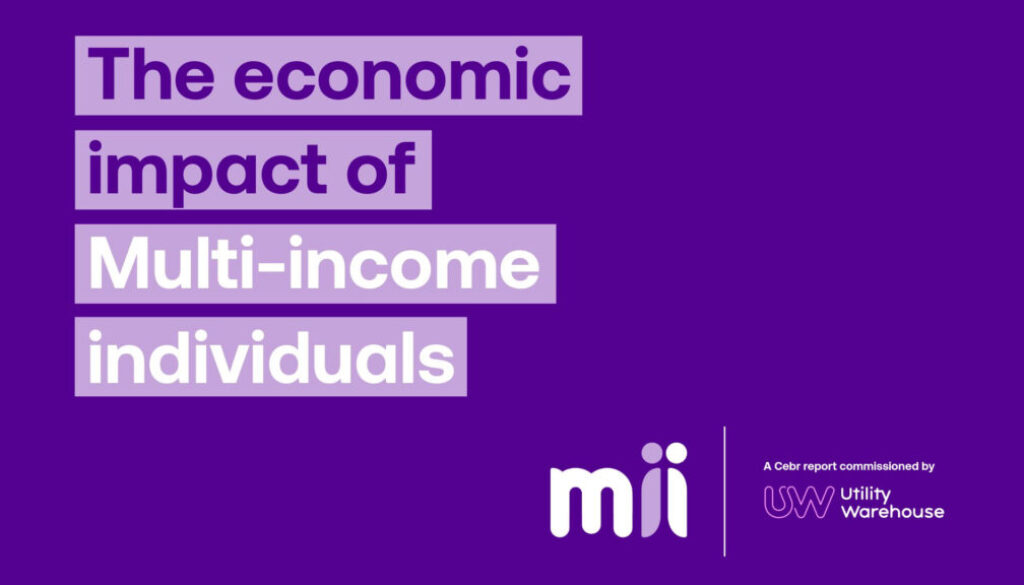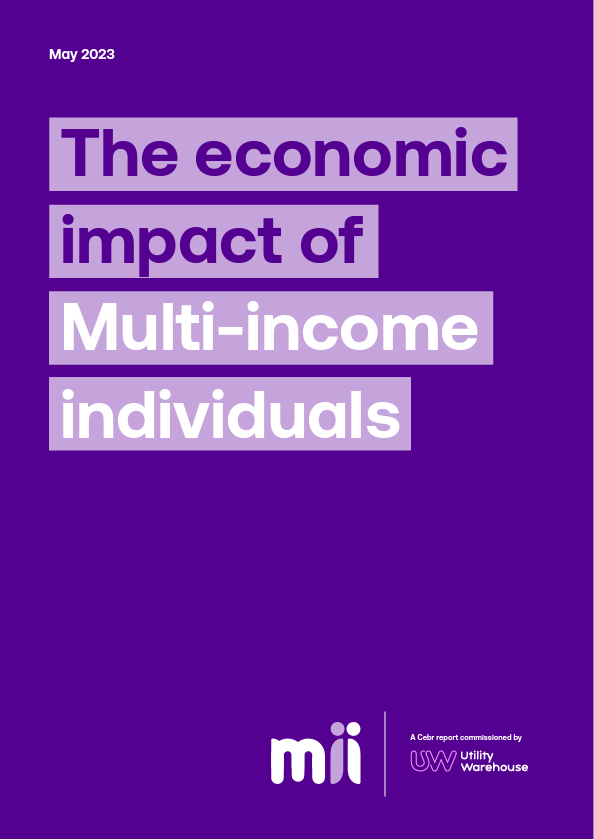The economic impact of Multi-income individuals
Developing multiple streams of income has never been more crucial
The last decade has witnessed a significant shift and growing acceptance of home-based income opportunities, with ever greater numbers of multi-income individuals building multiple incomes through side-hustles, second jobs, entrepreneurial endeavour, and business opportunities.
Developing multiple streams of income has never been more crucial (and popular), with over 20 million people (36.6% of the UK population) being classed as multi-income individuals (Miis). To quantify the growth of Miis, in 2017, only five million people in the UK could boast the benefits of a secondary income. Analysists predict that this trend will continue, and project that there will be 25 million multiple-income individuals by 2025. This fast-growing group currently earns an average secondary income of £780 per month and contributes an extra £54.75 billion of spend to the UK economy. Notably, those with higher primary incomes are more likely to have multiple streams of income.
Source: Sapio Research, Cebr analysis, commissioned by Utility Warehouse, May 2023 [read more]
Why do people become Multiple-income individuals?
The cost-of-living crisis, pension pressures, and growing financial uncertainties are fuelling those who pursue new ways to underpin both their immediate, and long-term financial security.
According to a report published by Centre for Economics and Business Research (Cebr) and the Utility Warehouse in June 2023, more than 1 in 3 of the UK population supplement their finances by as much as £10,000 per year through a side-hustle generated secondary income. This report highlights common reasons why people become multiple-income individuals. These are listed below:
- Wider cost-of-living crisis (35.2%)
- Rising household bills (33.8%)
- Retirement (19%)
- Pandemic (18.5%)
- Fear of recession (15.3%)
- Changes in interest rates (11.7%)
- Changes in family circumstances (11%)
- Brexit (8%)
- Trading apps (6.4%)
- Government schemes (6.1%)
Source: Sapio Research, Cebr analysis, commissioned by Utility Warehouse, May 2023 [read more]
Eradicating the stigma sometimes associated with earning a second income
In the report commissioned by the Utility Warehouse, it was found that a stigma still exists amongst second-income earners, to the extent that they refrain from talking about their endeavours. Aside from the obvious parallels with their own home-based business opportunity, the UW commissioned report sets out to draw positive attention to the significant economic benefits, whilst also eradicating the stigma that sometimes prevents people from embracing the wins of earning multiple streams of income.
Andrew Lindsay, Co-CEO of Utility Warehouse, said: “Millions of people in the UK are turning to side-hustles or second jobs to help make ends meet in the current cost-of-living crisis. We think these people – Miis – deserve greater recognition. They contribute billions of pounds to the economy through their extra work, but despite this, many think there’s a stigma attached to earning an additional income and don’t want to talk about it – even with family or friends. We want to challenge these preconceptions so people with multiple incomes can continue to help power growth and opportunity across the UK.”
Owen Good, Head of Economic Advisory, Cebr, said: “To our knowledge, this is the first and most detailed report of its kind, and provides significant insight into people who earn an extra income. Our research demonstrates the breadth and scale of these individuals across the UK, along with the associated economic contribution of this group. Over 20 million people across the UK have a secondary income and this figure is set to grow even further in the coming years. This provides a very significant boost for UK businesses, supporting jobs and increasing economic activity as Miis spend their additional income.”
Heather Cocks, a UW Partner based in St. Austell said: “When I joined, I initially joined for the UW Cashback Card. But then I saw the potential to help me plan for retirement. I didn’t have a pension at the time and my aim was to build my retirement plan. And UW Has helped me do this. Other incomes aren’t so secure, and I like how flexible this can be. I can do as much or as little as I choose, and the residual income continues to pay month to month.”
Stavros Michaelides, a UW Partner based in Bewdley, said: “I’d been working full-time my whole career and when we started a family, I wanted to cut down my hours by having more flexibility over when I worked, so I could spend more time with my family, while also retaining a full-time income. UW was perfect for me, and my second income means my partner Clare and I have way more time at home with our two children. Clare no longer needs to work a full-time job and can be a stay-at-home mum while I’ve been able to cut my hours in half, while retaining my income. This means I am a part-time stay at home dad as well.”
Daniel Wilson, a UW Partner based in Glasgow, said: “I had two motivations for getting a second income with UW; the first was spending more time with the family and the second was building something for me that was away from the traditional 9 to 5. Thanks to my second income, we are now able to do more as a family, we have fewer financial worries, and we’re making more memories with the kids. Without our extra income, we wouldn’t have that at all.”

To read the full report – click here.




